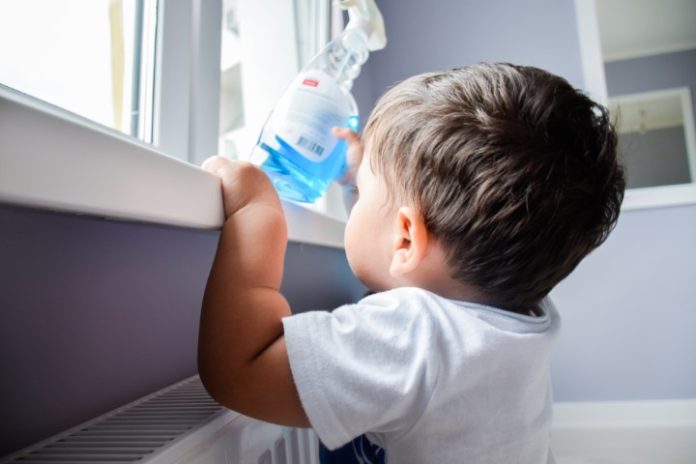Even though they are less likely to be mobile, infants 6 months and younger are involved in unintentional poisonings, according to a new study.
“I was surprised with the large number of exposures even in this young age group,” lead author A. Min Kang, MD, a medical toxicology fellow at Banner-University Medical Center in Phoenix, told HealthDay. “Pediatricians typically do not begin poison prevention education until about 6 months of age, since the traditional hazard we think about is the exploratory ingestion – that is when kids begin to explore their environment and get into things they’re not supposed to,” Kang added.
For the study, Kang and his colleagues reviewed all poison control center contacts in the National Poison Data System files for calls on infants 6 months and younger from 2014 to 2013. Their findings showed that of the more than 270,000 exposures reported during that time, 97 percent were accidental. Most of the calls did not result in hospitalization, but there were 73 deaths.
About half the poison center calls were the result of “general unintentional ingestion,” which included the baby exploring and swallowing a hazardous substance. Another 36.7 percent of the exposures were due to medication errors.
Among the medication exposures, 47 percent involved dosage mistakes. The remaining 43 percent involved giving a medication twice or too soon, or giving an infant the wrong medication. Almost all exposures happened at home, and most involved a single substance, usually a liquid.
Acetaminophen (Tylenol) was involved in more than 22,000 medication exposures and nearly 5,000 general exposures. Kang told HealthDay this high rate reflects the frequent use of acetaminophen because it is recommended for infants instead of ibuprofen.
Other common medication exposures included cough and cold products, antibiotics, antihistamines and ibuprofen. Kang noted that the American Academy of Pediatrics (AAP) strongly recommends against using cold or cough preparations in children younger than 2.
The most common general exploratory ingestions included diaper care and rash products, acetaminophen, and gastrointestinal products such as those prescribed to treat an infant’s acid reflux. Kang emphasized that even though infants are not very mobile, anything they can get hold of generally winds up in their mouth.
“Caregivers should try to be aware of the surroundings in which they place an infant because even if they are not mobile, they can still grab things within reaching distance and the first thing they will do is put it in the mouth,” Kang told Reuters. “Be mindful of older siblings and restrict their access to dangerous substances because they may share things that they find,” Kang also advised.
Kang suggested that it might be time for doctors to provide poison prevention education to caregivers earlier, even starting when newborns leave the hospital. He also urged parents to post the poison control center phone number – 1-800-222-1222 – in their home and program it into their cellphones for quick reference in case of an emergency.








